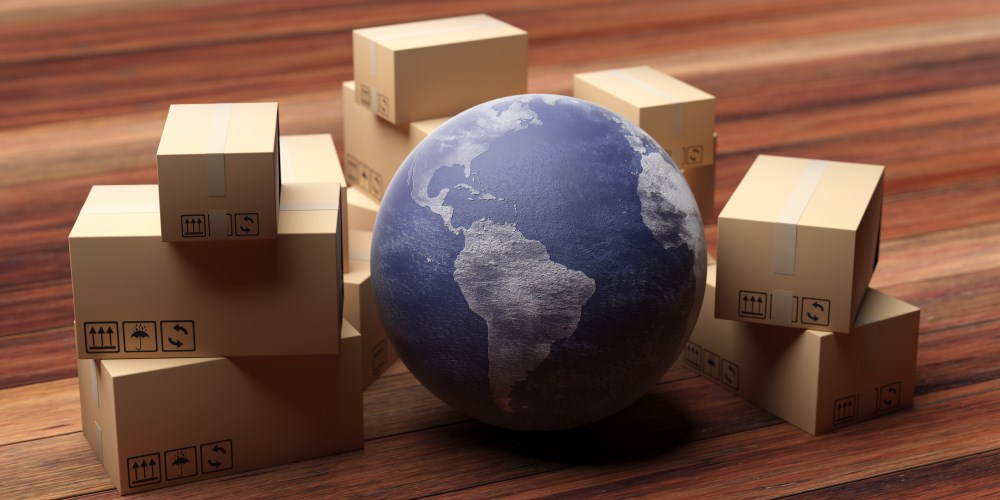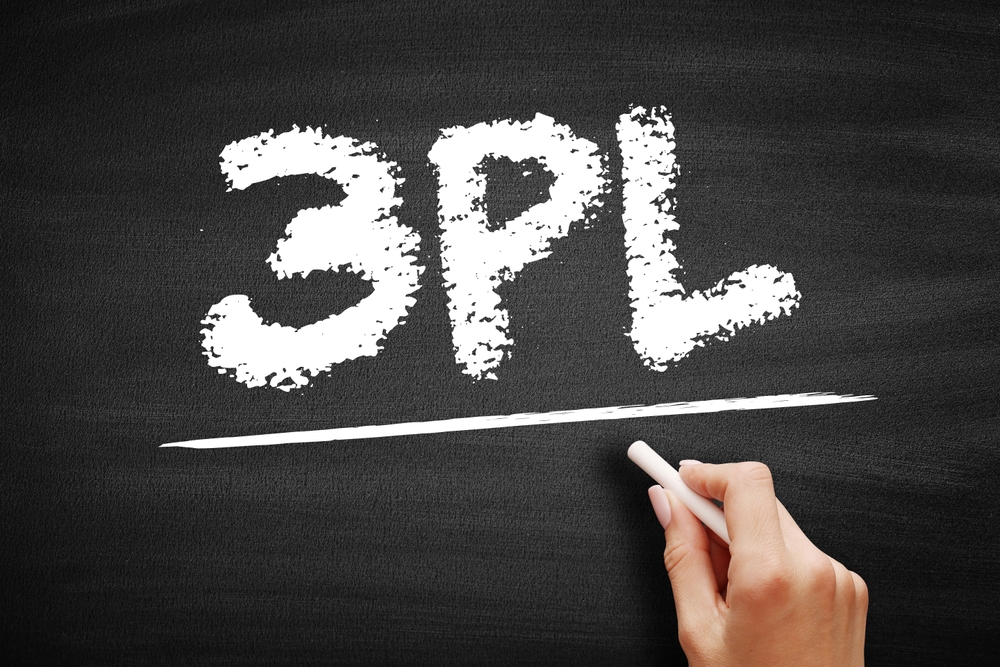Navigating supply chain management can be challenging for business, whether they are big or small, new or experienced. Serving as an outsourcing powerhouse and a strategic ally, third party logistics (3PL) companies step onto the scene to shoulder the weight of logistics intricacies. This means that businesses are outsourcing critical functions such as warehousing, transportation, and order fulfillment to specialized providers.
The appeal is clear: efficiency gains. 3PL providers bring expertise and economies of scale, optimizing processes and reducing costs. Partnering with a 3PL is a calculated move to streamline operations and enhance the overall effectiveness of a business.
What are 3PLs?
Essentially, a 3PL provider is an external company that takes charge of various logistics and supply chain functions on behalf of businesses. This outsourcing model allows companies to delegate specific tasks, enabling a more smooth and flexible approach to managing their goods and services.
At its core, a 3PL provider handles key logistics components, including:
- Warehousing: managing inventory, storage, and distribution in dedicated facilities.
- Transportation: overseeing the movement of goods, whether by road, air, sea, or rail.
- Order Fulfillment: executing the complete order process, from receiving to packing and shipping.
3PL services come in various shapes and sizes, offering a range of services tailored to meet specific needs of different businesses. Some companies may opt for comprehensive end-to-end solutions, while others may selectively outsource particular functions.
Unlike a simple vendor-customer relationship, the partnership with a 3PL is strategic. It involves collaboration to align logistics processes with overall business objectives. This strategic collaboration aims to enhance efficiency, reduce costs, and improve overall supply chain performance.
Challenges of In-House Logistics
While the idea of managing logistics in-house might seem like the conventional and more convenient approach, it comes with its fair share of challenges.
1. Complex Operations
Managing everything in-house involves dealing with many complex tasks, such as handling inventory and fulfilling orders. This can be tough, especially for growing businesses. Coordination among various operations adds another layer of complexity, potentially leading to inefficiencies.
2. Cost Challenges
Setting up and maintaining in-house logistics requires a lot of money, which can be a problem, especially for smaller businesses, as it takes away resources from their main activities. High fixed costs and potential budget overruns create financial challenges that can hinder overall business sustainability.
3. Adaptability Issues
In-house logistics setups may struggle to adapt quickly to changes in demand or the market. This becomes a challenge, especially during busy times or when a business is growing fast. The lack of scalability and agility can negatively impact responsiveness to market dynamics and lead to missed opportunities.
4. Skill Gaps
Running logistics efficiently requires specific skills. In-house teams may find it hard to keep up with the latest trends and technologies, which can affect their performance. Skill gaps may result in outdated practices and hinder the adoption of innovative solutions crucial for modern logistics.
5. Risk Exposure
Logistics is full of uncertainties, from supply chain issues to rule changes. In-house logistics can expose businesses to more risks, especially if they don’t have the resources to handle problems well. This increased risk exposure can lead to disruptions, affecting customer satisfaction and the overall stability of the business.
6. Resource Challenges
Spending time and resources on in-house logistics means less focus on the business’ main strengths. This might mean missing chances to grow or work on important projects. Resource challenges negatively impact the core competencies of the business and limit its ability to seize new opportunities and navigate strategic initiative effectively.
Benefits of Partnering with a 3PL
Partnering with a 3PL provider can bring a myriad of benefits that significantly improve the efficiency of a business’ operations.
1. Operational Streamlining
Engaging a 3PL service introduces a level of operational efficiency that might be challenging to achieve in-house. The 3PL logistics system excels in streamlining various processes, optimizing inventory management in 3PL warehouses, and simplifying the intricacies of order fulfillment. This efficiency translates into well-organized inventories, accurate order processing, and real-time visibility into the supply chain. By leveraging economies of scale, 3PL providers also optimize resources, ensuring businesses can adapt quickly to market dynamics while minimizing operational costs.
2. Cost Efficiency
Beyond the upfront investments required for in-house logistics, 3PL systems offer a cost-effective alternative. Shared resources and expertise in logistics translate into reduced operational costs for businesses. By spreading the financial burden among multiple clients, a 3PL management provides access to specialized expertise, cutting-edge technology, and economies of scale, ultimately contributing to significant cost savings for businesses.
3. Scalability and Flexibility
A key benefit of third party logistics is scalability. Businesses can easily adjust operations based on demand fluctuations, leveraging the flexibility inherent in the third party logistics services. This adaptability allows for efficient resource utilization during peak periods and cost savings during quieter times. The scalable infrastructure of 3PL systems offers a cost-effective solution, enabling businesses to align logistics operations with changing needs swiftly. This strategic flexibility positions companies for growth and operational excellence in a dynamic market.
4. Focus on Core Competencies
Outsourcing logistics to a third party logistics provider allows businesses to concentrate on their core strengths. This strategic move ensures that the complexities of logistics and shipping are expertly managed by professionals, freeing up the company to focus on what it does best. This approach accelerates innovation, enhances operational efficiency, and optimizes resource allocation for sustained growth.
5. Advanced Technology Integration
Third party logistics providers excel in leveraging cutting-edge 3PL systems and technologies. Real-time tracking, data analytics, and automation within a 3PL warehouse ensure accurate and efficient supply chain management. This advanced technology integration enhances visibility, enables data-driven decision-making, and improves warehouse operations, contributing to a more responsive and efficient supply chain.
6. Enhanced Customer Service
The partnership between businesses and the right third party logistics provider will inevitably lead to improved customer service. Timely and accurate 3PL shipping and order fulfillment contribute to customer satisfaction, fostering long-term relationships. The efficiency in logistics processes ensures on-time deliveries and precise order fulfillment, while transparency and flexibility in service options further enhance the overall customer experience.
7. Risk Mitigation
Third party logistics providers specialize in risk management, offering businesses a shield against unforeseen challenges. From strategically located 3PL warehouses to adaptive transportation strategies, they ensure continuity in operations. Diverse carrier relationships and contingency plans further reduce vulnerabilities, while continuous monitoring enables quick and effective responses to risks.
8. Global Reach
The global reach provided by numerous 3PL logistics providers enables businesses to transcend regional boundaries and unlock new growth possibilities. With operations spanning the globe, these companies facilitate market expansion for businesses. They bring expertise in navigating international logistics, customs regulations, and diverse transportation systems, optimizing supply chain efficiency on a global scale.
9. Customized Solutions
3PL companies excel in tailoring solutions for businesses, customizing 3PL shipping, inventory management, and distribution strategies. This adaptability ensures dynamic and efficient logistics operations and positions businesses for agile responses to evolving market demands, fostering sustained growth and competitiveness. With a focus on unique needs, the right 3PL system offers a strategic edge in an ever-changing business landscape.
10. Focus on Continuous Improvement
Collaborating with a 3PL provider encourages an ongoing commitment to efficiency. Regular evaluations within the 3PL management framework ensure that logistics processes stay efficient and up-to-date. This proactive approach to improvement enables businesses to adapt swiftly, optimizing operations for sustained success.
Common Concerns About 3PL Partnerships
While partnering with 3PL providers brings numerous advantages, businesses often harbor certain concerns before committing to such collaborations.
1. Loss of Control
The primary worry here is that, in the absence of direct supervision, there might be challenges in maintaining loyalty to brand standards. Having invested time and effort in cultivating a particular image and delivering a consistent brand experience, businesses fear that a third party logistics provider might not align with these established standards. Moreover, the concern extends to the ability to address issues promptly, since in-house teams are accustomed to immediate responses and quick resolutions when challenges arise.
2. Data Security Risks
Businesses fear potential vulnerabilities in sharing sensitive information like proprietary processes and customer data, which raises the risk of unauthorized access or data breaches. This worry extends to ensuring the robustness of cybersecurity measures implemented by 3PL providers, prompting businesses to seek partners with proven track records in data security and strict adherence to industry compliance standards.
3. Communication Challenges
Effective communication is pivotal in logistics, yet some concerns arise when collaborating with 3PL providers. These concerns encompass potential language barriers, time zone differences, and the importance of aligning communication standards with the 3PL company. Language disparities can introduce the risk of misunderstandings, while varying time zones may result in communication delays, affecting the responsiveness of logistics operations.
4. Cost Transparency
Concerns about cost transparency rank high among businesses when contemplating collaboration with 3PLs. The worry revolves around the potential lack of clarity in the pricing structures associated with 3PL services, which can lead to apprehension. The primary concern is the fear of hidden fees, as businesses are wary of unexpected additional charges that might not be explicitly outlined in the initial agreement. The prospect of discovering unforeseen costs post-engagement can strain budgets and undermine the financial predictability that is essential for effective business planning.
5. Flexibility and Scalability
The essence of this concern lies in the uncertainty of whether the 3PL provider can adeptly adjust to the evolving needs of the business. One primary worry is the ability to accommodate growth. Businesses aspire to expand and evolve, and the fear is that the chosen 3PL provider might not seamlessly grow alongside them. Similarly, in times of reduced demand or economic fluctuations, businesses may need to scale down their operations temporarily. The concern is whether the 3PL can flexibly adjust services and costs without compromising the overall efficiency of the supply chain.
6. Reliability and Consistency
The most common concern regarding reliability and consistency revolves around potential delays in shipments. Businesses rely on timely and predictable deliveries to meet customer expectations and maintain operational efficiency. The fear is that an unreliable 3PL provider may introduce delays, causing disruptions in the overall supply chain timeline, which can negatively affect the business’ reputation and customer satisfaction.
7. Integration with Existing Systems
The worry about the integration of 3PL services with existing systems and technologies may arise when attempting to merge the 3PL system with the established operations of the business. Businesses often operate with diverse systems and technologies that are finely tuned to their specific needs. The fear is that the 3PL system might not align with these existing technologies, leading to data discrepancies or disruptions in the flow of information.
Overcoming Collaboration Challenges
While these concerns about partnering with a 3PL are valid, there are several proactive strategies that businesses can use to navigate these challenges.
1. Clear Communication and Partnership Building
Prioritize open communication to establish shared expectations and build trust with 3PL partners. Regular check-ins and feedback loops foster transparency.
2. Data Security Assurance
Select 3PL providers with proven cybersecurity measures. Clear contractual agreements and periodic security reviews contribute to a secure collaboration.
3. Transparent Cost Management
Engage in open discussions with 3PL companies about pricing structures. Clearly define all costs, including potential hidden fees, and conduct periodic financial reviews for transparency.
4. Adaptable Partnerships
Choose 3PL providers with a demonstrated commitment to tailoring services and adaptability. Assess their track record and capabilities to ensure a partnership that evolves with changing business needs.
5. Reliability and Consistency
Vet 3PL providers based on performance history and adherence to service level agreements. Maintain clear expectations and open communication for a reliable and consistent logistics partnership.
6. Seamless Integration
Prioritize 3PL providers with proven capabilities for seamless integration. Assess technological compatibility, engage in testing, and maintain open communication for a smooth alignment with existing business operations.
Conclusion
Navigating in-house logistics presents a set of challenges, from intricate operations to high costs and adaptability issues. This is where 3PL solutions come to the rescue—they step in to streamline operations, slash costs, and provide the flexibility needed.
When a business is considering a collaboration with a 3PL, concerns about maintaining control, ensuring data security, and fostering effective communication will naturally come up. By placing emphasis on transparent communication and collaboration, and selecting a trusted 3PL partner such as Elite Anywhere, the two can tackle these concerns together, which will result in a successful and powerful partnership.
About Us

More than just a white glove delivery company: we specialize in receiving, warehousing, shipping, and national white glove delivery & installation services.
Categories
Related posts
Ready to get started?

Experience new growth opportunities and elevate your business to the next level with our unparalleled white-glove delivery service and extensive coverage. By partnering with us, you can tap into previously undiscovered potential that will drive you closer to your goals.

Latest blog posts
From Beach to Beyond: Your Guide to Moving To and From Miami
Moving to or from Miami is an exciting adventure, filled with opportunities for new beginnings and fresh experiences.
Retail Shipping Hub: Powering Deliveries with Warehouse Expertise
A retail warehouse associate is pretty much the backbone of a retail business's logistics and supply chain operations. Learn more in the article!
Revolutionizing 3PL Inventory Management: Innovations for Enhanced Efficiency
In recent years, the ecommerce boom has reshaped shopping and introduced challenges for entrepreneurs and businesses to overcome for success.

A complete end-to-end logistics company. From receiving to last-mile delivery and everything in between, our staff delivers a true white glove experience with meticulous care and attention to detail. Need something pickup up, crated, and delivered - anywhere in the world? Let's get started!





